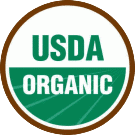Order products!
About our farm
Farm blog
Why grass fed?
Why organic?
Why soy-free?
Why eat local?
Our difference
FAQ's
Bone broth
Organic chicken
Organic eggs
Organic pork
Frozen is Fresher
Testimonials
Recipes
Contact us

From our family to yours...
We are a 100%-owned family farm, so you can rest assured that everything that bears our name is produced on our farm with the greatest attention to every detail.
You see, we truly care about the health of our family, and we care about yours too.
Our mission is to provide families with truly healthy meat.

Farm Blog
Posted by: Trevor
October 30, 2012
First, the good news. Small-scale rural family farms are on the increase, as people seek to reconnect with the land, traditions, and their rural roots. Some of these small operations are actually becoming profitable enterprises, as they sell their homespun products into the burgeoning farmers markets which have spread throughout the lower mainland.
This surge in traditional agriculture is part of a much larger movement toward "local, small-scale family-run agriculture" which is breathing life into rural communities all across Canada. A good thing, to be sure.
Second, the bad news. Municipal governments have been undermining this movement by drafting policies which are designed to not only discourage small-scale agriculture and rural living, but even to prevent it from happening altogether.
Case in point: Our family farm is based on Sumas Mountain, in Abbotsford, where agriculture is the financial backbone of the community.

Sumas Mountain is where our family farm is based
But recently, the folks at City Hall decided they wanted to turn a large part of Sumas Mountain into a zero-disturbance "nature preserve" of sorts. They developed a plan to eliminate anything which might interfere with their vision, and agriculture was on their hit-list of things to get rid of.
Naturally, when we learned of the plan we were disturbed. "How could City Hall actually be against farming? We're an organic, sustainable farm. We are benefiting hundreds of customers, treating our livestock well, nurturing the land, and bringing value into the community. All this is good, right?" But when we talked to the staffers at City Hall who drafted the plan, we found out they didn't really care.

Herbivores at work replenishing the soil
And so the battle began. Together with dozens of other rural landowners on Sumas Mountain, we lobbied the municipality aggressively, for about six months. We spent hundreds of man hours, thousands of dollars, and lost much sleep, as we tried to defend our farm, our rural community, and our property rights. And as of a few days ago, we received some great news: the "nature preserve" plan is, according to the City, dead. They've backed down. Farming can continue on the mountain. Peace can return.
The absurd thing about all this is that we, together with the few hundred other mountain landowners who live up here, are the best caretakers of nature that anyone could hope for. Most of us live up here because we love nature, love wildlife, and love trees. But the City staffers who wanted to erase humans from Sumas Mountain didn't see things that way.

Our farm is filled with all kinds of wildlife
What we've just experienced up here on Sumas Mountain is, sadly, not unique. It is part of a much larger agenda on the part of "urban-centric elitist" bureaucrats who passionately believe that rural life must be micro-managed and even curtailed.
They use terms like "smart growth", "urban densification", "transit oriented development", and "infill" --- but what they really mean is focusing population and economic activity inside the urban centers, and turning the outlying rural areas into undisturbed natural landscapes, teeming with wildlife but devoid of farms and humans. They see rural landowners as "sprawl" --- or worse, a blight on the natural landscape. Their vision is diametrically at odds with the small-scale sustainable agriculture movement.
And it's no accident. The policies of local government are sometimes intentionally designed to impede the development of small-scale local agriculture. This is ironic in light of the fact that many of those who draft these dreadful policies are ardent advocates of farmers markets and buying-local. They hold conflicting views. On the one hand they love the concept of local, healthy foods --- but on the other hand they hate the idea of people actually living on the land. They love seeing the small-scale operators at the local farmers market, but they're opposed to letting them live in peace on their rural homesteads.
This urban-centric philosophy sees the surrounding rural areas as primarily for:
- pretty views
- watersheds
- wildlife corridors
As a result, small-scale farming is often treated by local governments with derisive contempt, as we've just personally experienced. When City Hall tries to restrict or prohibit its citizens from traditional rural lifestyles, they are impeding the growing movement to local, small-scale agriculture.
Who benefits from all this? The large-scale industrial factory farms. Local governments prefer those operations because they can be isolated, controlled, and confined to specific areas. Small-scale rural farmers, on the other hand, are by definition rather difficult to control. They are seen as annoying speed bumps in the push to turn outlying rural areas into zero-disturbance wildlife zones.

Green pastures, early spring on our mountain farm
The activist bureaucrats who wish to impose their rural vision on the rest of us believe that nature should be seen, and not touched. They'd rather have bushland than farmland. We love forests too (which is one reason we live here), but we recognize that people need food which is raised responsibly and ethically. And the best way to do this is by encouraging small, local, organic family farms.
In short, anything which restricts peoples' ability to practice small-scale rural agriculture, ends up perpetuating the industrial-farming model. And that's bad. It's bad for communities, families, animals, nature, and the soil.
If we want healthy, local food, then we'll do what's necessary to encourage small-scale agriculture in our rural areas. And we'll demand our local governments stop getting in the way of rural folks who are trying to return to the ancient paths of traditional farming.
We're grateful that we won this battle. But we realize we are the exception and not the rule --- there are hundreds of small farms throughout this country which are facing similar issues. Thank you for supporting us and what we're doing. We believe that as more people come to realize the wisdom and importance of small, local, organic family farms, we'll see healthier land, healthier people, and healthier communities.
Other Farm Blog Posts



